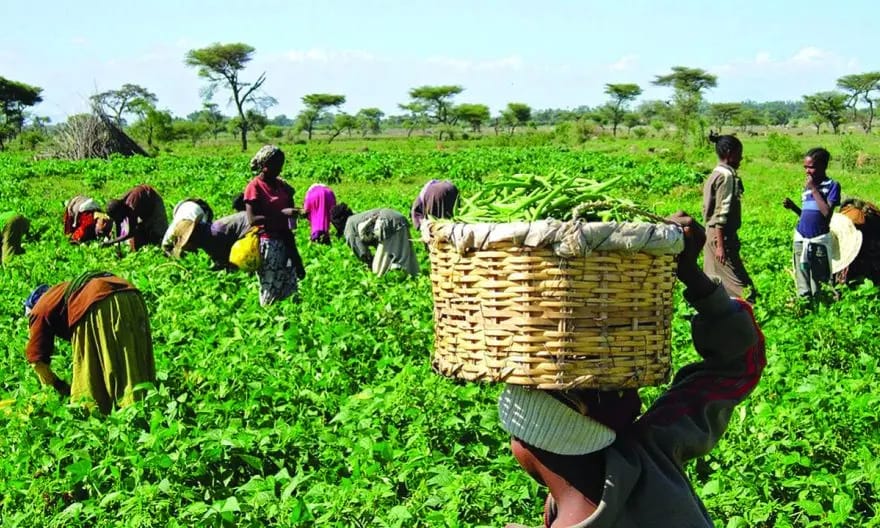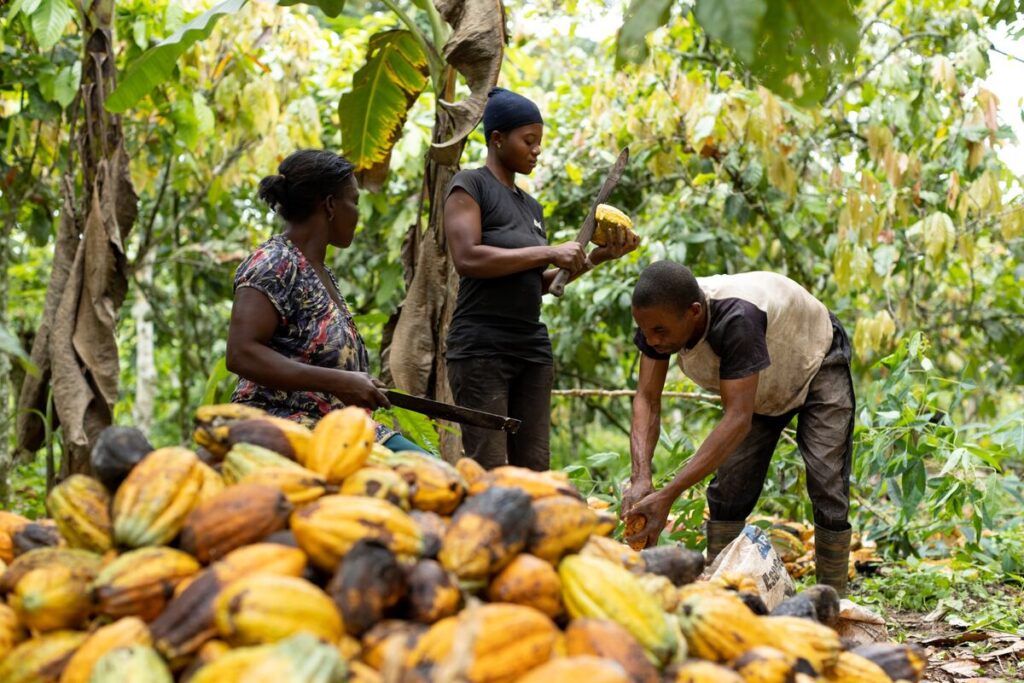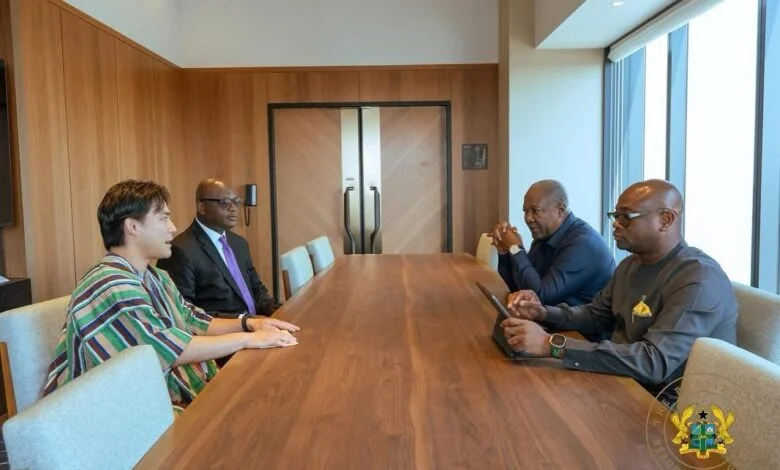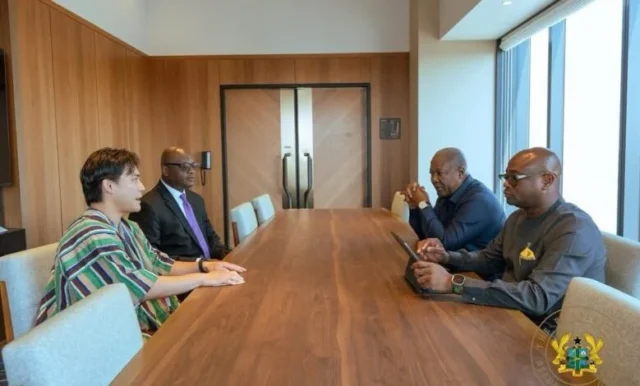On August 25, 2025, Ghana stepped into the global spotlight with an announcement that could reshape Africa’s agricultural future. A $100 million investment deal was sealed to transform the country into the continent’s first AI-powered agricultural hub. The partnership, driven by Degas Limited — a global agri-tech company — signals not just a financial commitment but a technological revolution that could uplift millions of farmers across Ghana and beyond.
The deal was finalised in Yokohama, Japan, after a meeting between Ghana’s President John Dramani Mahama and Degas CEO Doga Makiura. It is designed to run over four years, with a clear focus: to harness artificial intelligence, satellite technology, and precision farming tools to strengthen the backbone of Ghana’s food systems — its smallholder farmers.
This development is not a mere policy announcement; it represents a new agricultural identity for Ghana. It is about showing the world that Africa is ready to lead in blending technology with traditional farming. For a continent where agriculture contributes nearly 35% of GDP and employs more than half of the population, this is a story that matters to every African.

Table of Contents
How AI Will Change the Everyday Life of Farmers
The promise of this $100 million deal is not abstract. It is about changing how Ghanaian farmers grow, harvest, and sell their crops. For decades, farmers in regions like Ashanti, Brong Ahafo, and the North have worked tirelessly but often remained trapped in cycles of low yields, poor market prices, and limited access to modern inputs.
AI technology will offer solutions in several concrete ways:
- AI-Powered Satellite Imagery: Farmers will be able to monitor their land from above, identifying early signs of crop stress, pests, or nutrient deficiencies long before they become visible to the naked eye.
- Precision Farming: Sensors, data analytics, and AI-driven recommendations will help farmers apply fertilisers, pesticides, and water only where needed, reducing waste and costs.
- Remote Monitoring at Scale: Degas has already demonstrated in pilot projects that it can monitor thousands of farms remotely, providing farmers with real-time updates and forecasts.
- Yield Predictions: By analysing soil health, weather patterns, and plant growth, AI tools can predict harvests accurately. This helps farmers plan better and connect to buyers in advance.
In earlier Degas-backed projects across Africa, farmers’ incomes have reportedly doubled, and repayment rates on input loans reached 95% — a rare achievement in agricultural financing. The expectation is that Ghana will now scale these successes across the nation.
As one cocoa farmer in Kumasi put it during a stakeholder engagement session:
“For years we have farmed with our hands and with prayers for good rains. Now, if AI can show us when to plant, when to water, and how to get better markets, our sweat will not go to waste.”

Ghana’s Strategy: From Food Security to Youth Employment
President Mahama called the investment a “strong vote of confidence in Ghana’s vision for integrated, technology-enabled agriculture.” This vision goes beyond boosting yields. It is about transforming agriculture into a sector that creates jobs, strengthens food security, and positions Ghana as a continental leader in agri-tech.
At least 70% of Ghana’s smallholder farmers operate on less than two hectares of land. These farmers form the backbone of the country’s food supply but are often excluded from modern financing and high-tech solutions. By targeting this group, the Degas partnership ensures inclusivity.
The four-year programme will train farmers in digital literacy, expose them to AI-driven tools, and help them access credit more easily. Youth employment is also a major pillar. Thousands of jobs are expected to emerge — from drone operators and data analysts to field agents and software developers. For Ghana’s fast-growing population of young people, this initiative provides an alternative to the traditional search for white-collar jobs in urban centres.
Beyond employment, the partnership is also about national food security. Ghana has long been an exporter of cocoa, but like many African nations, it still imports large volumes of staple foods like rice and wheat. With better yields, accurate forecasts, and efficient supply chains powered by AI, the country aims to reduce dependence on imports and stabilise domestic food prices.
Why This Matters for Africa and the World
Ghana’s $100 million AI agriculture deal is not just a Ghanaian story. It is a continental one — with ripple effects likely to influence agricultural policy and investment across Africa. Nigeria, Kenya, Rwanda, and Ethiopia will be watching closely. Each faces similar challenges: smallholder-dominated agriculture, climate change vulnerabilities, and food security pressures.
By demonstrating how AI can make agriculture both profitable and resilient, Ghana is essentially running a live case study for the rest of Africa. Already, international development experts are pointing to Ghana as an example of how to bridge the gap between smallholder farming and high-tech innovation.
Globally, the implications are significant. Climate change is disrupting food production in every region. Supply chain shocks from pandemics and geopolitical conflicts have shown how fragile global food systems can be. If Ghana proves that AI can enhance agricultural resilience, the lessons will extend far beyond Africa. Countries in Asia and Latin America, facing similar issues of smallholder dependency and climate risks, may adopt similar models.
However, challenges remain. Access to affordable smartphones and reliable internet connectivity in rural areas must improve. Farmers need training to use digital platforms confidently. There is also the risk of leaving behind those who cannot afford the new tools. The Ghanaian government and its partners will need to address these concerns to ensure the benefits are widespread and inclusive.

Conclusion: Planting the Seeds of a Tech-Driven Future
This $100 million investment is more than an economic deal — it is the planting of seeds for a new agricultural future in Africa. If successful, Ghana will not only achieve greater food security and create thousands of jobs but also establish itself as a continental leader in AI-powered farming.
The optimism is grounded in evidence: Degas’ previous projects have doubled farmer incomes and proved that remote AI monitoring works at scale. The difference now is ambition — scaling up to reach entire regions and building an agricultural ecosystem that is tech-enabled from seed to market.
For the ordinary farmer, this could mean fewer sleepless nights worrying about rainfall, fewer losses to pests, and better prices in the market. For the youth, it could mean new jobs in technology and agriculture. For Ghana, it is a step towards independence from food imports and a stronger role in Africa’s economic story.
As President Mahama framed it, this is not just about Ghana. It is about Africa showing the world that it can lead, innovate, and thrive in the era of artificial intelligence.
The world is watching. And for once, Africa is not just catching up — it is taking the lead.
Join Our Social Media Channels:
WhatsApp: NaijaEyes
Facebook: NaijaEyes
Twitter: NaijaEyes
Instagram: NaijaEyes
TikTok: NaijaEyes













![Tragic Incident: Fans of Seyi Vibez Die in Fatal Accident After Electrifying Lagos Concert [VIDEO] Seyi Vibez](https://naijaeyesblog.com/wp-content/uploads/2025/08/Seyi-Vibez-180x135.avif)


























